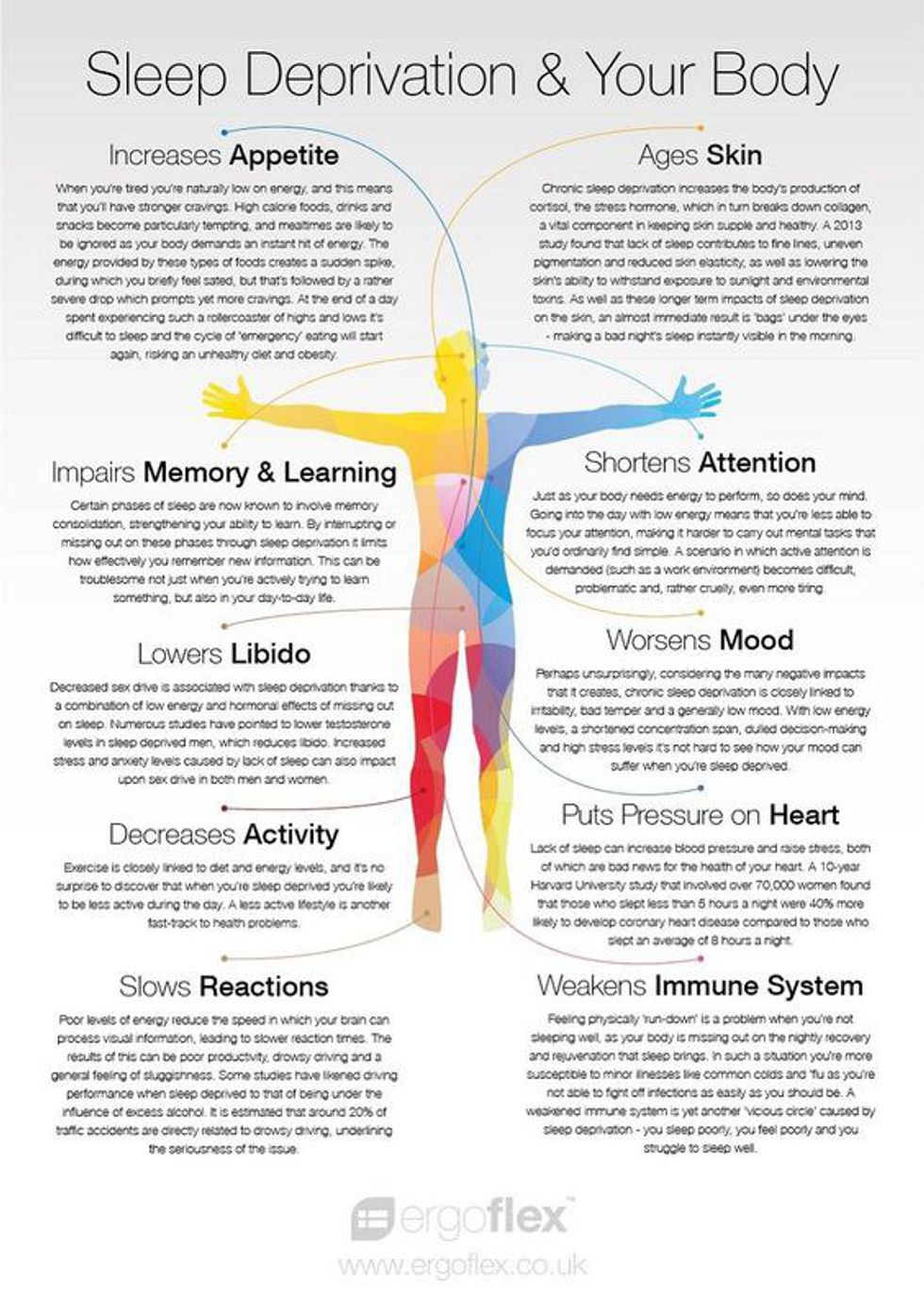Sleep is one of the most mysterious phenomenons of not only the human species, but among a majority of animal species throughout the world. Everyday, we jam pack our agendas in order to keep up with our fast paced modern societies. We as a species have conditioned ourselves to be in a constant state of doing, thinking, and moving, so much to the point that we’re willing to downplay the amount of sleep we physically need in order to survive to our healthiest extent.
This biological resting state plays a crucial role in the upkeep of ones physical and mental health, and without it, there can be major life-threating consequences. We need to sleep as much as we need to eat, drink, and breathe. Sleep heals and repair vital heart and blood vessels within the central nervous system, as well helps the organization and recollection of memories.
According to Harvard Medical School, sleep deprivation can lead to higher risk of chronic health problems like high blood pressure, heart disease, and stroke. Studies show that sleeping less than five hours a night increases the risk of death from all causes by about 15 percent.
Researchers at the US National Library of Medicine say persistent sleep deficit has been related to harmful effects on mood, behavior, performance, social function, and in some cases, a risk to physical health. Sleep deprivation can cause one to be more moody, irritable, and cranky, which leads one to have more difficulty generally self-regulating moods, leading to faster periods of frustration, aggression, and short-temperedness.
In terms of behavior, those who are sleep deprived are more likely to engage in risky behaviors such as drinking or driving fast. Cognitive ability is also affected, as inadequate sleep will result in problems with attention, memory, decision-making, reaction time, and creativity. Academic performance has also been proven to drop, as teenagers who obtain less sleep are more apt to receive poor grades, fall asleep in school, and have more tardiness and absences.
According to The National Sleep Foundation, those who obtain less sleep are unable to maximize the learning opportunities of the education system, since sleep deprivation impairs their ability to be alert, pay attention, solve problems, cope with stress, and retain information.
Not only that, but mental and behavioral problems such as irritability, depression, poor impulse control, and violence are linked. It can also make one more prone to pimples and other skin issues, as research links a lack of sleep to increased production of the stress hormone cortisol, which breaks down collagen in the skin.
Researchers claim that one can die after going 5 straight days of getting 0 to no sleep, yet we keep cheating ourselves short in an attempt to keep up with society. Our quality of life will get lower and lower the less and less we sleep, and these short/long term affects are only the beginning of the issues we might encounter. We need to reevaluate our priorities around our sleep schedules more than anything else, as they have a large effect in how positive and successful our waking lives are.
Listed below are the minimum sleep requirements for all age groups:
- Older adults, 65+ years: 7-8 hours
- Adults, 26-64 years: 7-9 hours
- Young adults, 18-25 years: 7-9 hours
- Teenagers, 14-17 years: 8-10 hours
- School-age children, 6-13 years: 9-11 hours
- Preschool children, 3-5 years: 10-13 hours
- Toddlers, 1-2 years: 11-14 hours
- Infants, 4-11 months: 12-15 hours
- Newborns, 0-3 months: 14-17 hours
Overall affects/risks caused by sleep deprivation:
- Impaired brain activity
- Cognitive dysfunction
- Moodiness
- Depression
- Accident prone/accidental deaths.
- Cold and flu
- Type 2 diabetes
- Heart disease
- High blood pressure
- Weight gain
- Weakened immune response
- Hallucincations
- Memory problems
- Excessive yawning

























